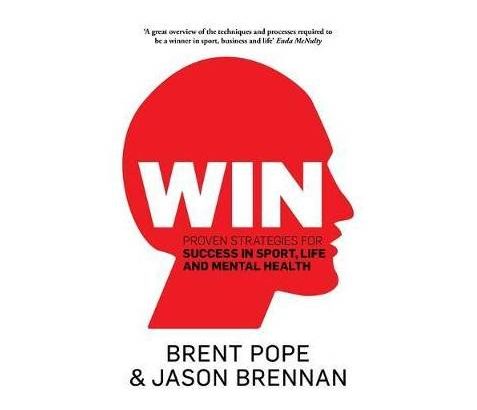Win: Proven Strategies for Success in Sport, Life, and Mental Health
by Brent Pope and Jason Brennan (Hachette Ireland, €16)
Peter Hegarty
‘What’s wrong friend?’ said the Samaritans volunteer at the other end of the line. Brent Pope poured out his sadness, describing how low, helpless and lonely he had been feeling. Since his childhood he has been suffering from dysthymia, an episodic condition he describes as a ‘chronic state of discontentment’.
The long talk with the Samaritans, Pope tells us, probably saved his life.
He tells the story to illustrate a central point of a clear, insightful book: good communication is essential in our struggles to succeed and deal with all of the negative aspects of the human condition.
The importance of talk and discussion may seem obvious, and yet we overlook it.
Psychotherapist Jason Brennan notes that businesses no longer rely on individuals in well-defined roles: they tend nowadays to rely on teams.
When these underperform it’s often because people aren’t clear with each other.
It’s easy to praise a colleague for a job well done, but we often find it difficult to offer constructive criticism or, where it is warranted, severe criticism. People grow frustrated without feedback, without honest criticism. People enjoy praise, but bland praise is worse than none at all.
We’ve all been at meetings attended by people who make no contribution. Do they make no contribution because they have nothing valuable to say? Or do they fail to contribute because the person chairing the meetings doesn’t encourage them to talk?
Pope suggests that technology is stripping us of our communication skills in our working and social lives.
We do everything from our desks now, no longer enjoying the little social interactions that the trip to the fax-machine or the filing cabinet once involved. It’s common these days to see silent groups of people staring at phones in pubs and restaurants. We’re all getting used to silent banking.
We need to be open with ourselves as well as with others. Failures and setbacks lie ahead of all of us: the injury that cuts short a sporting career, the downturn that costs us our job. How well prepared for them are we?
The authors ask us to accept that what we do does not define us. A bad injury in 1987 pitched Pope into a deep depression, and left him feeling useless.
It took him a long time to realise that he had built up a great store of knowledge about rugby that would stand to him if he went into coaching and commentating.
His experience of dysthymia informs his work for mental health charities.
Failure is instructive: it reminds us that we are sovereign beings.
We make our choices; we own our failures.



